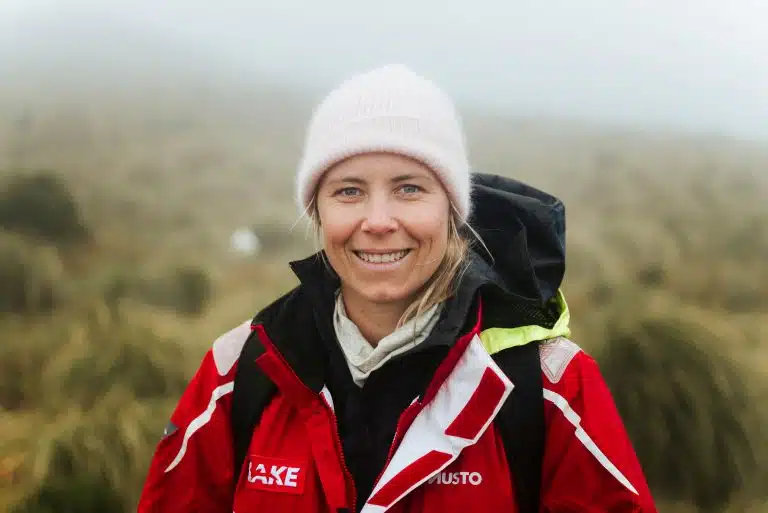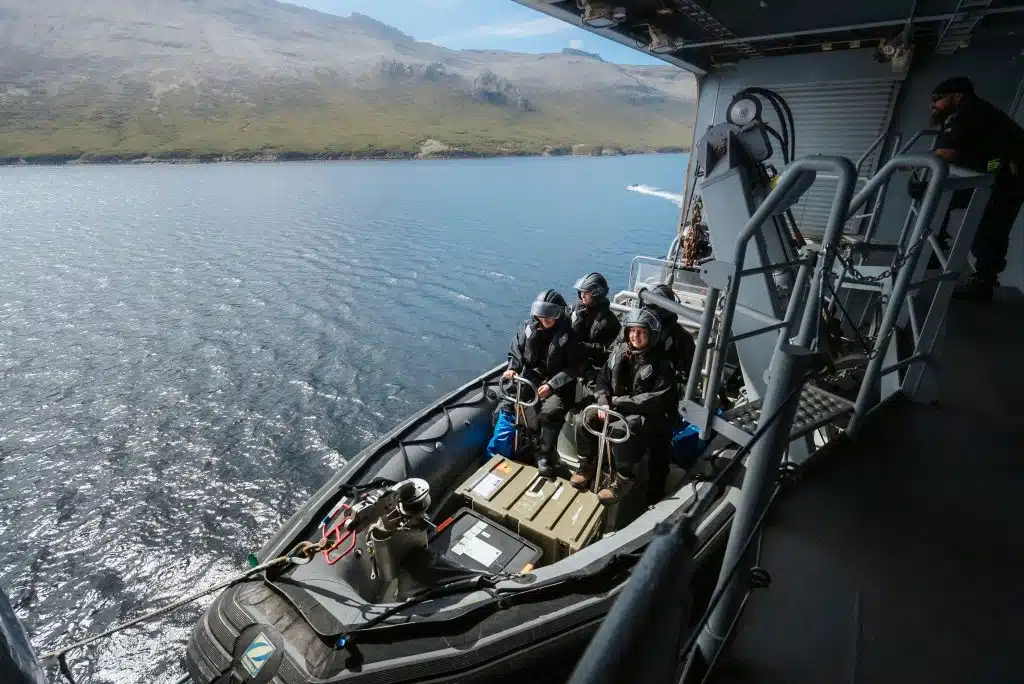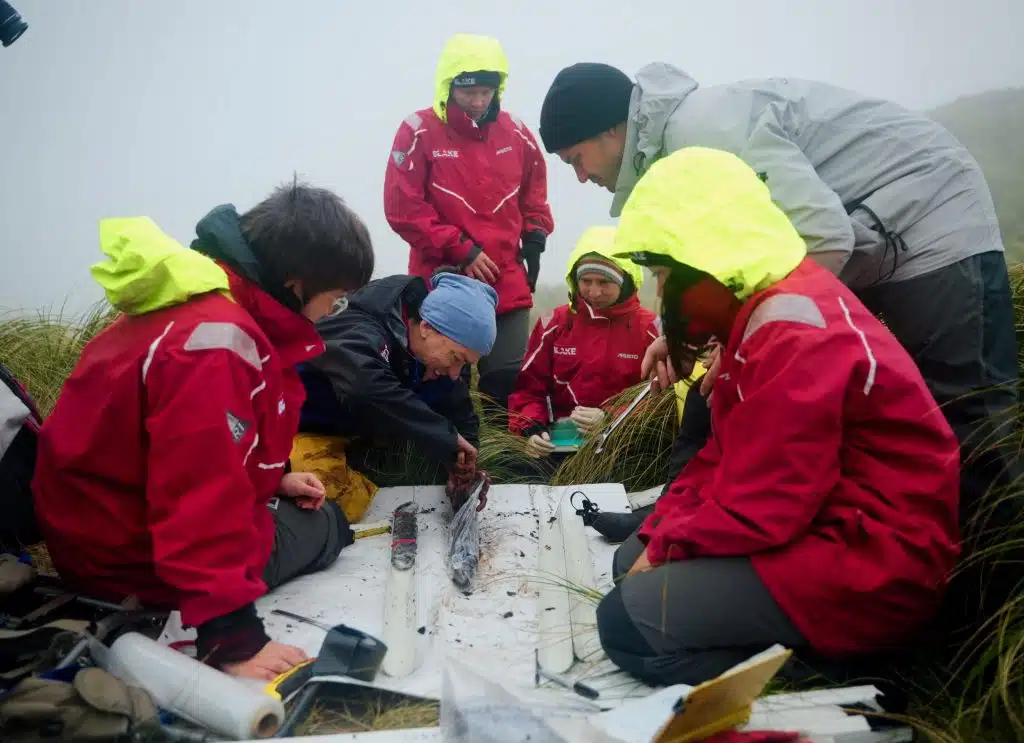Westpac representative Kate Archer went on the adventure of a lifetime – she joined a BLAKE Expedition to the sub-Antarctic’s with BLAKE and the Royal New Zealand Navy. Now back from her adventure, Kate shares her experience with us.
After three years of planning, my trip to the Sub-Antarctic Islands as the Westpac Ambassador with the (Sir Peter) BLAKE Foundation finally commenced!
After spending 24 hours getting through Department of Conservation (DOC) biosecurity, we boarded the HMNZS Canterbury ship during a beautiful sunset in Bluff and headed down the Southern Ocean to Campbell Island. This is one of the Sub-Antarctic Islands, located 700km below New Zealand, and is a pristine environment undisturbed by pests/predators or human intrusion. A UNESCO World Heritage Site, the island is home to a unique set of plants, birds (albatross), penguins, sea lions, etc. Over 170 Navy crewed the ship for a group of ~50 Embarked Forces (being our BLAKE Group, scientists, DOC, NZ Air Force and Armed Forces, Metservice and Ngāi Tahu representatives).
From day one, we were lucky enough to experience complete immersion into Navy life, including:
• Morning boot camp on the ship’s ‘flight deck’ while balancing against the ocean swell
• Daily wakeup to the Navy alarm (Whistle, ‘Wakey, wakey, wakey’, followed by a new daily song booming over the speaker)
• Lessons on fending off sea lions
• Being part of the Navy drills (‘Man overboard – get to your ‘muster station’’) and
• Boarding the Navy zodiac and RIB boats (in full emersion suits given the freezing Sub-Antarctic temperatures) to get to shore and do our three science projects.
The trips focus is to help educate and develop the students, particularly with a focus on encouraging career paths into science and sustainability.
As part of this, I did a presentation one evening to outline how the financial sector is taking action on sustainability, Westpac’s sustainability strategy and examples of sustainable finance transactions. This created a great discussion around how businesses can lead on sustainability and the role of finance to drive change.
Campbell Island forms part of the Westerly Wind Circuit, making it a critical geography to study the effects of climate change (including understanding past climates) and to forecast the potential impact flowing to NZ’s climate (i.e. rainfall). The three main science activities planned for Campbell Island (and the surrounding waters) included:
1. Plankton sampling (lead by a Cawthorn Institute scientist)
Plankton was collected from the Southern Ocean throughout the voyage to explore the diversity of ocean plankton communities. The Environmental DNA (eDNA) will be analysed to unravel invasive species, plankton diversity, distribution, and evolution in the context of climate change.
2. Kelp sampling (lead by a University of Otago professor)
To determine where and when kelp and associated invertebrate species might establish in Antarctica under future warming scenarios.
3. Peat and stream sampling (lead by a University of Otago geologist)
Peat sequences will be cored to generate paleoclimate records. This determines how the climate system responded to natural forcing prior to the human induced changes we see today and identify extreme climate events (e.g. droughts or floods). The historical perspective can help us plan for the future and identify climate states and their causes, that may not have been prevalent during the last 1,000 years.
BLAKE provides wonderful opportunities to young students to experience marine life, with particular focus on the important role science plays in preserving natural environments and supporting climate action. I was joined by 23 other people on the BLAKE Expedition, including students, teachers, and scientists.
Sadly, given the devastation of Cyclone Gabrielle, the HMNZS Canterbury was called to support relief efforts in Hawkes Bay. While the trip was shortened to 7 days, we still managed to explore the island and for many students (and myself), it still proved to be a life changing experience.




